The Advanced Course in New Technologies Law aims to specialize the student in the regulations governing the activities directly or indirectly related to the technological environment, Internet and telecommunications, from copyright, computer contracting, e-commerce and data protection, to the applicable international law, taxation and computer crimes.
The specialist in New Technologies Law will be a professional with specialized mastery of the applicable legal standards, without losing the perspective of how new business models influence e-commerce, on which the legal activity is carried out. The program in New Technologies Law is structured in five subjects + a complementary subject (E-business):
- Software: Negotiation and contracting of IT products
- Telecommunications Rights
- Intellectual Property: Protection and transfer of copyrights to third parties.
- Automated Data Processing in the company.
- Telematic Contracting: Security and taxation in e-commerce.
Aimed at
Law graduates or final year students. Practicing professionals who need to know the rules of the game and the regulations applicable in the field of technology, either to develop their activity or to make a functional or qualitative change by acquiring the necessary legal knowledge in the field of new technologies.
Program
SOFTWARE: NEGOTIATION AND CONTRACTING OF COMPUTER PRODUCTS.
- Basic terminology of the sector.
- Computer programs: basic notions.
- Intellectual Property of the computer program: copyright (distribution, transformation and reproduction).
- The protection of the computer program: Intellectual Property Registration. Other forms of Software protection: Software patentability.
- General Terms and Conditions.
- License Agreement.
- Custom Development Contract.
- Maintenance Contract.
- Distribution Contract.
- Escrow Contract.
- Outsourcing Contract.
- Leasing-Renting Contract.
- Assignment of Exploitation Rights.
- Civil Software Proceedings: Labor Relations
- Practical experiences of large companies in the sector: S.A.P-B.S.A.
AUTOMATED DATA PROCESSING IN THE COMPANY.
- Principles of data protection.
- Privacy in the Electronic Communications sector.
- Public/private ownership files.
- Privately owned files: Marketing.
- International data movement.
- Computer concepts about databases and security measures.
- Data Protection Agency.
- Administrative Disciplinary Proceedings before the APD.
- Practical experiences in PDM-Shober.
TELEMATIC CONTRACTING: SECURITY AND TAXATION IN E-COMMERCE.
- Protection of the website.
- Protecting the identity of the company on the Internet: domains and trademarks. Recovery of domains.
- New types of contracts related to the development of activities on the Internet: General aspects, distance selling, general contracting conditions.
- Legal Validity of the Electronic Document: electronic signature and certification services.
- Legal Security in the Electronic DNI.
- Payment Methods in Electronic Commerce.
- Legal regulation of advertising and promotional activities in
- Internet.
- Regulation of information society services.
- Practical experience of large companies in the sector.
- Taxation in the purchase and sale of services and products over the Internet.
- Experience in the Computer Crime Squad of the Police.
INTELLECTUAL PROPERTY: PROTECTION AND TRANSFER OF COPYRIGHT TO THIRD PARTIES.
- General Concepts of Intellectual Property.
- Protection of Intellectual Creations:
- Musical creations.
- Audiovisual work.
- Multimedia creations.
- Literary work.
- Databases.
- Cable and satellite TV.
- Collective management of rights.
- Civil and Criminal Criminal Proceedings: Precautionary Measures
- Practical experiences in large companies in the sector: Legal Notice.
TELECOMMUNICATIONS LAW.
- Liberalization of telecommunications in the international environment, privatizations, acquisitions and alliances in the sector.
- Qualifications.
- Interconnection.
- Network access and general principles.
- Universal public service obligations. Common Telecommunication Infrastructures.
- Use of the Public Domain and Private Property in the General Telecommunications Law.
- Scarce resources; numbering and radio public domain.
- Competition Law.
- Cable Operators Group.
- Challenge before the Audiencia Nacional.
- Taxation of telecommunications.
- Broadcasting services: radio and television.
- Legal analysis of markets.
- Practical Experiences at Telefónica Móviles
Methodology
The method used combines theoretical analysis of legislation with practical cases carried out individually and in groups, encouraging the ability to interpret, discuss and debate legal issues from all existing points of view in each case. The teaching staff is made up entirely of practising professionals from different areas. – Limited number of participants, to facilitate the exchange of ideas and experiences between students, professors and invited professionals. – Specialized training, according to the needs of each student. – Taught by the best professionals in the legal field who have the prestige and solvency within the field of New Technologies. – Developed from a practical perspective, integrating the experiences of the teachers, those of the participants in the course and those of the specialists who temporarily join each of the subjects. – Deepening in the set of subjects that make up each of the subjects.
NOTE: This course meets the necessary requirements to be subsidized by the Social Security. The Chamber of Commerce offers you free of charge the management of the procedures and documentation corresponding to the subsidy. Please contact us 20 days before the start date of the course.
Duration
250 teaching hours
Dates
Start date: 27/10/2008 End date: 22/06/2009
Timetable
| From 27/10/2008 | at | 22/06/2009 | From 18:00 h. A 22:00 h.The Days: L X |
Price
Total Course Fee: 3650 euros
Additional information and course venue
Cámara Oficial de Comercio e Industria de Madrid
IFE
c/ Pedro Salinas, 11
28043 Madrid
Tlf.: 91 538.38.38
Fax: 91 538.38.36
E-mail: informacion_ife@camaramadrid.es
Note: The IFE reserves the right to postpone or cancel courses on the scheduled dates, notifying interested parties sufficiently in advance.

